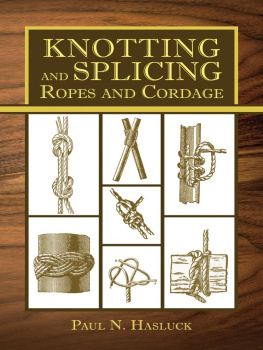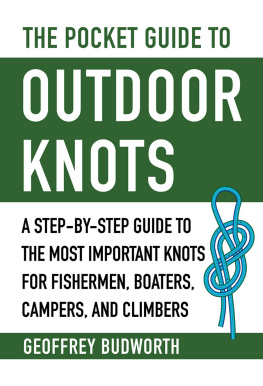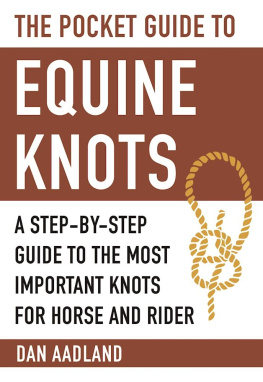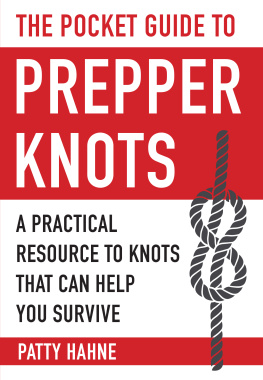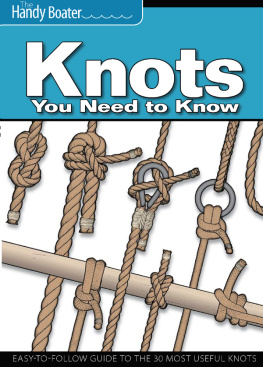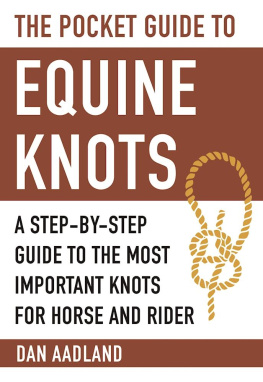Duane Raleigh - Knots & Ropes for Climbers
Here you can read online Duane Raleigh - Knots & Ropes for Climbers full text of the book (entire story) in english for free. Download pdf and epub, get meaning, cover and reviews about this ebook. year: 1998, publisher: Stackpole Books, genre: Children. Description of the work, (preface) as well as reviews are available. Best literature library LitArk.com created for fans of good reading and offers a wide selection of genres:
Romance novel
Science fiction
Adventure
Detective
Science
History
Home and family
Prose
Art
Politics
Computer
Non-fiction
Religion
Business
Children
Humor
Choose a favorite category and find really read worthwhile books. Enjoy immersion in the world of imagination, feel the emotions of the characters or learn something new for yourself, make an fascinating discovery.

- Book:Knots & Ropes for Climbers
- Author:
- Publisher:Stackpole Books
- Genre:
- Year:1998
- Rating:3 / 5
- Favourites:Add to favourites
- Your mark:
- 60
- 1
- 2
- 3
- 4
- 5
Knots & Ropes for Climbers: summary, description and annotation
We offer to read an annotation, description, summary or preface (depends on what the author of the book "Knots & Ropes for Climbers" wrote himself). If you haven't found the necessary information about the book — write in the comments, we will try to find it.
Knots & Ropes for Climbers — read online for free the complete book (whole text) full work
Below is the text of the book, divided by pages. System saving the place of the last page read, allows you to conveniently read the book "Knots & Ropes for Climbers" online for free, without having to search again every time where you left off. Put a bookmark, and you can go to the page where you finished reading at any time.
Font size:
Interval:
Bookmark:

title:
author:
publisher:
isbn10 | asin:
print isbn13:
ebook isbn13:
language:
subject
publication date:
lcc:
ddc:
subject:

Page iii
Knots & Ropes for Climbers
Duane Raleigh
Illustrations by Mike Clelland
Page iv
Copyright 1998 by Stackpole Books
Published by
STACKPOLE BOOKS
5067 Ritter Road
Mechanicsburg, PA 17055
All rights reserved, including the right to reproduce this book or portions thereof in any form or by any means, electronic or mechanical, including photocopying, recording, or by any information storage and retrieval system, without permission in writing from the publisher. All inquiries should be addressed to Stackpole Books, 5067 Ritter Road,
Mechanicsburg, PA 17055.
Printed in the United States
10 9 8 7 6 5 4 3
First edition
Cover design by Caroline Stover
Library of Congress Cataloging-in-Publication Data
Raleigh, Duane.
Knots and Ropes for Climbers / Duane Raleigh.
p. cm.
ISBN 0-8117-2871-4
1. Climbing Knots. 2. Knots and Splices. Title.
GV200.19.K56R35 1998 97-22467
796.52'2dc21 CIP
Page v
Contents
1. About Knots
2. Knotty Words
3. Starter Knots
4. Knots
5. On Rope
6. Rope Care
7. On Cord
8. On Webbing
Glossary

Page vi
The camel is the most ruminative of animals, and he slobbers constantly while he ruminates,particularly on his Picket-Line Hitch, which he believes is provided for this purpose. His knot isalways sopping, but it has been very nicely planned; and so, wet or dry, it is never difficult to untieand it does not slip in either direction.
Clifford W. Ashley The Ashley Book of Knots, 1944
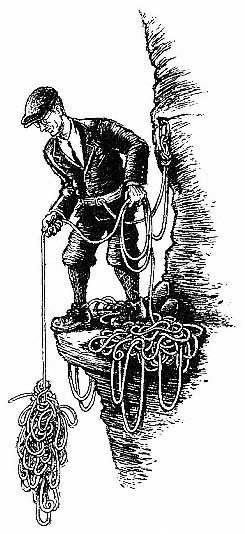
Page 1
About Knots
We cannot safely climb without rope. And we cannot use rope without knots. Knots, like life, are slippery devils, full of twists and complications. Both are unforgiving. Make one wrong turn, and the whole mess falls apart. Or you find yourself wrapped in a hairy
snarl.
Unlike life, however, you can practice tying knots. You can grab a hank of line and run the rabbit out of the hole, around the tree, and back into the hole until you can render the Bowline perfect every time.
Even if we didn't climb mountains, we would never get far without knots. About three steps, and our shoes would fall off. So we must master at least one knot or go barefoot.
Things get a tad more complex when we climb. For that activity, you have the Ring Bend, Prusik, Figure Eight, Bowline, Grapevine, Klemheistthe list is near endless.
Page 2
But you need not know every hitch and bend to climb safely or well. What follows are instructions for a variety of knots that I've found useful throughout twenty-four years of climbing. For simplicity, I've weeded out the superfluous. Still, you will notice a number of redundancies. For example, the Figure Eight Follow-Through and the Double Bowline serve the same purposeto join climber to ropeyet I've included both, when learning one would suffice. This is done not to confuse, but to give you a choice. I've climbed with hundreds of partners, and about half preferred the Bowline; the others swore by the
Figure Eight. After you learn both, you will likely come to favor one over the other.
Perhaps you'll find that the Bowline is easier to untie after it has held a hard jerk. Or you'll prefer the peace of mind and simplicity of the Figure Eight. I use both, depending on my mood.
Similarly, you'll find four ascending knotsthe Prusik, Klemheist, Bachman, and Auto
Block. All do essentially the same thing, but each has a distinct advantage over the others in certain situations. A smart climber will commit all four to memory. Various other overlaps occur throughout the book. This is intentional.
But you can't teach someone how to tie knots by written description alone. Take the
humble Square Knot, for example. To tie, take hold of the rope or cord and grasp an end in each hand. Cross the right over the left, run it behind, then up through the forming loop. Now take the right strand (used to be the left strand), pass it around the left (used to be the right), run it behind, and then up through the forming loop. Pull both ends taut to dress. Do the second step backward, however, and you get the treacherous Granny Knot, which easily falls apart. See what I mean? And this was a simple knot. Try the same with the complex Bowline, and you could come untied from your climbing harness and pay a
fast visit to the Almighty.
So how does a book teach knot tying? Through illustration. For that onerous task we've employed the JPGts of the inkman Mike Clelland. He lives up in the rough mountains of Idaho and practices what he draws most every day. His scratch-pen drawings take you
step by step through tying each knot. The words that follow are meant to provide insight into the knot's uses, and in some cases touch on the abstract. Study the illustrations, mouth the words, and you'll find that tying even the most roundabout knots is easy.
Of course, you should practice your knots somewhere other than on the cliff or
mountain. Flat ground is good. A comfortable chair is ideal. Practice until there are no questions. Getting it right is an
Page 3
absolute. If you doubt your knot, it is wrong. Untie and go again. A properly tied knot will look right. It will not have odd crossings or twists.
When you are about to start a climb, have a trusted friend double-check your lashings.
I've probably tied the Bowline ten thousand times, but I still get that bugger wrong now and then, usually when I'm caught up in jabber or debate, fogged by fear, or distracted by the bark of a mean dog. Having a friend examine my tie-in knot has saved my life at least once.
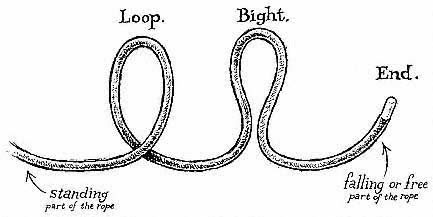
Page 5
Knotty Words
The common definition for a knot is any complication in a rope or sling that isn't caused by accident. When you toss a rope off a route to rappel and the rope works itself into a bird's nest, it may seem like you have a knot, but all you really have is a problem. To untangle a snarl of this sort, keep the wad loose, and be patient. Usually the tail of the rope has not involved itself, so all you need to do is pull the loops apart. Rushing or pulling the end through, while satisfying, will only cost you more time.
In actual use, most people lump together hitches, bends, and everything else, including our tangle, and refer to all as knots. For demonstration purposes, however, it helps to be more specific, even if you forget the terminology as soon as the book cover snaps shut.

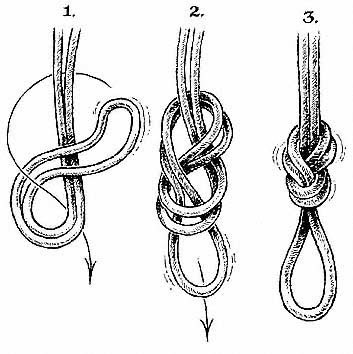
Font size:
Interval:
Bookmark:
Similar books «Knots & Ropes for Climbers»
Look at similar books to Knots & Ropes for Climbers. We have selected literature similar in name and meaning in the hope of providing readers with more options to find new, interesting, not yet read works.
Discussion, reviews of the book Knots & Ropes for Climbers and just readers' own opinions. Leave your comments, write what you think about the work, its meaning or the main characters. Specify what exactly you liked and what you didn't like, and why you think so.

